The Upcoming Tunisian Presidential Election: What Led Us Here?
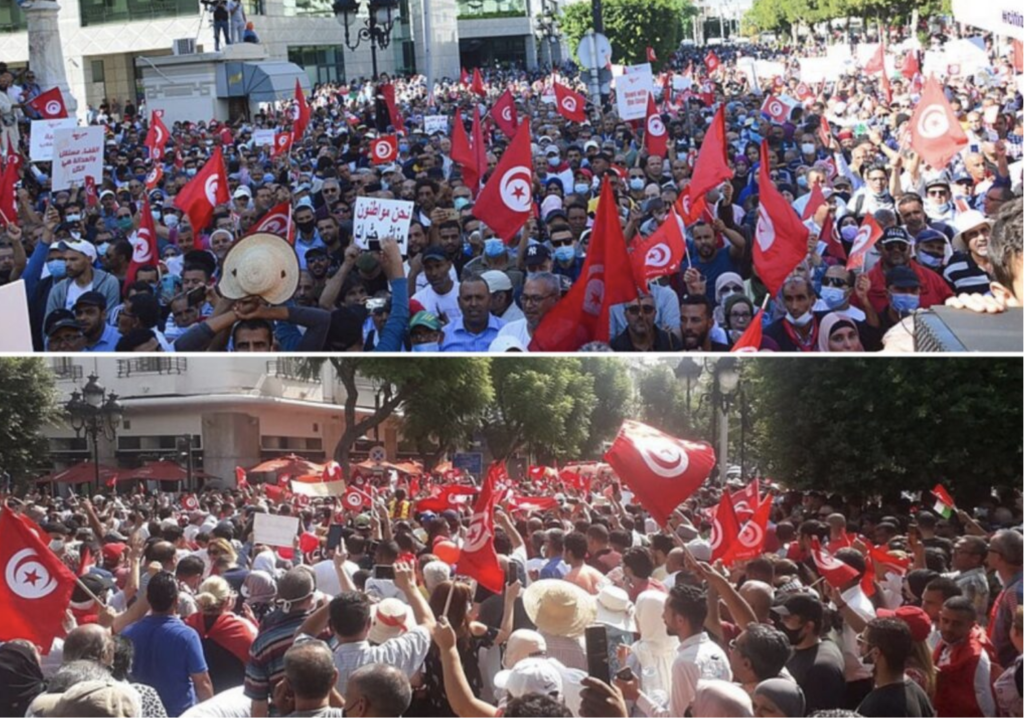
By Liam Nagle / Arab America Contributing Writer
Tunisian President Kais Saied has recently announced that the country will hold presidential elections for the third time since the ousting of Zine El Abidine Ben Ali in 2011. However, there are concerns about the legitimacy and honesty of the upcoming election revolving around Kais Saied. A former lawyer on constitutional law, Saied has been accused of authoritarianism following the 2021 Tunisian “self-coup” when the Tunisian legislature was suspended. Other measures enacted during his presidency have not helped his case, and now political parties are even boycotting the upcoming election. Given that Tunisia was widely seen as a “success story” during the Arab Spring, what has occurred in the years after the Tunisian Revolution?
Direct Aftermath of the Revolution
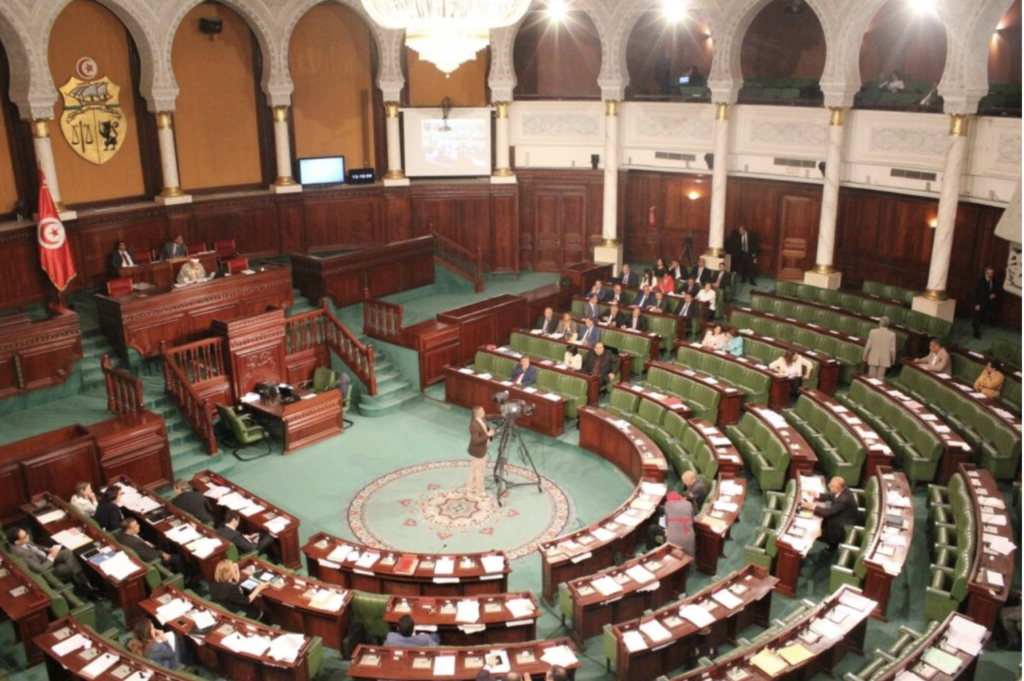
Following a massive campaign of civil protests and resistance and Ben Ali’s fleeing to Saudi Arabia, Tunisia implemented a temporary interim government before elections were held for Tunisia’s legislature in the fall of 2011. The elections had a 49.41% turnout and resulted in the moderately conservative and Islamist political party, the Ennahda Movement Party, gaining the majority of seats with 36.97% of the vote. The new Tunisian legislature immediately began working on a new constitution, decentralizing power away from the presidency and helping to secure freedom of speech, gender equality, and religious tolerance. This constitution was subsequently adopted in 2014.
The Ennahda Movement agreed to give up power so that elections could be held according to the new constitution—both for the new Tunisian parliament, the Assembly of the Representatives of the People, and for the position of Tunisian President. With a turnout of around 60-70% for both bodies, the Ennahda Movement fell to second place, with the newly formed Nidaa Tounes winning the majority of the Assembly and the presidency. This big-tent and pro-secularist party saw Beji Caid Essebsi, the party’s founder, elected as president.
2019 Elections
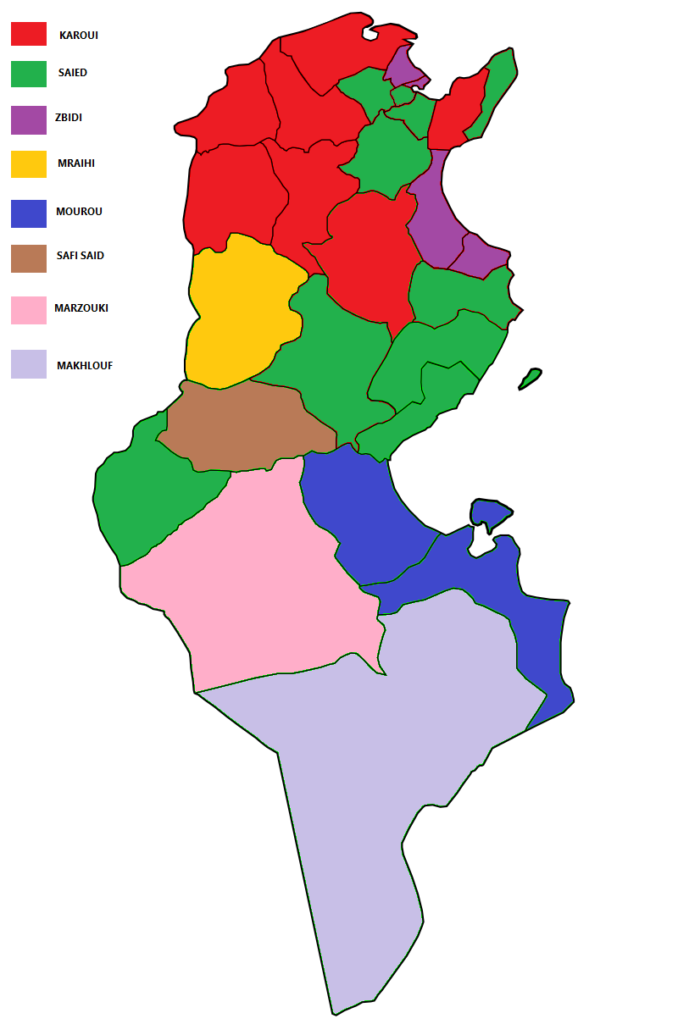
Essebsi’s reign as president was seen positively by most of the western world due to his support for a democratic Tunisia. However, towards the end of his presidency, economic difficulties in the country began to worsen. Essenbi’s death in 2019 resulted in Tunisian elections occurring slightly sooner than expected, and the election was dominated by talks over the economy and corruption. As a result, Kais Saied, an independent but later supported by Ennahda, was elected as president in a landslide victory and a turnout of around 50%. In the Assembly, Ennahda lost seats but became the largest party due to several new, smaller parties receiving smaller percentages of the vote.
Saied, in particular, has been described as an anti-establishment populist. Labeled as “RoboCop” due to his monotonous voice and use of Standard Arabic instead of the Tunisian dialect, his political positions during the campaign were somewhat vague. A prominent position he took was his stance on corruption. He claimed that Tunisia’s current issues were due to a “non-respect for many constitutional laws”, and he supported policies in favor of direct democracy, allowing citizens to recall their elected officials and believing that local representatives should be elected based on their character rather than political ideology or affiliation. This led to a large portion of the Tunisian electorate supporting him, including the vast majority of voters aged 18-25.
Early Saied Presidency
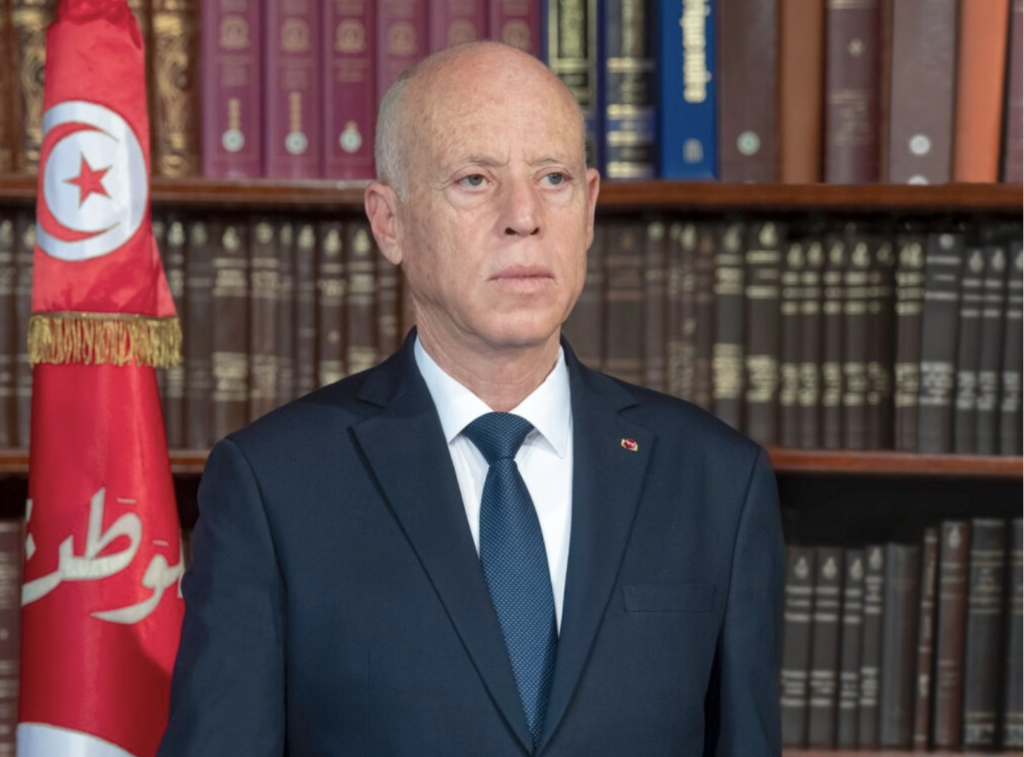
The economic difficulties and corruption in Tunisia ran deep and were only exacerbated by the COVID-19 pandemic. The first Prime Minister and his government, after the 2019 elections, were forced to resign in 2020 following a controversy that he owned 44 million dinars worth of shares in a company. Following this, Saied selected Hichem Mechichi to form a new cabinet in September 2020, which consisted mostly of independent experts rather than party affiliates. In spite of this, Saied, Mechichi, and the entire Assembly disagreed on interpreting how power was to be shared – with Saied arguing that the constitution gave the president more authority than Mechichi and the Assembly would allow. The COVID-19 pandemic worsened the situation, with the government partially paralyzed by the argument and the Tunisian Health Ministry becoming overloaded. As a result, protests broke out across the country, calling for the government to resign and for parliament to dissolve, with some protestors even going as far as to attack Ennahda’s offices.
On the 25th of July, 2021, Kais Saied announced that he would dismiss the government, suspend the Assembly of the Representatives of the People, and appoint a new prime minister. The Tunisian army was sent to blockade the Assembly so the representatives couldn’t enter. Many Tunisians supported the “self-coup”, with tens of thousands celebrating the move in the streets. Mechichi stated that he would hand over authority to a new prime minister of Saied’s choosing. Meanwhile, Ennahda and other ruling political parties denounced the move – eventually banding together to form the National Salvation Front against Saied.
Late Saied Presidency
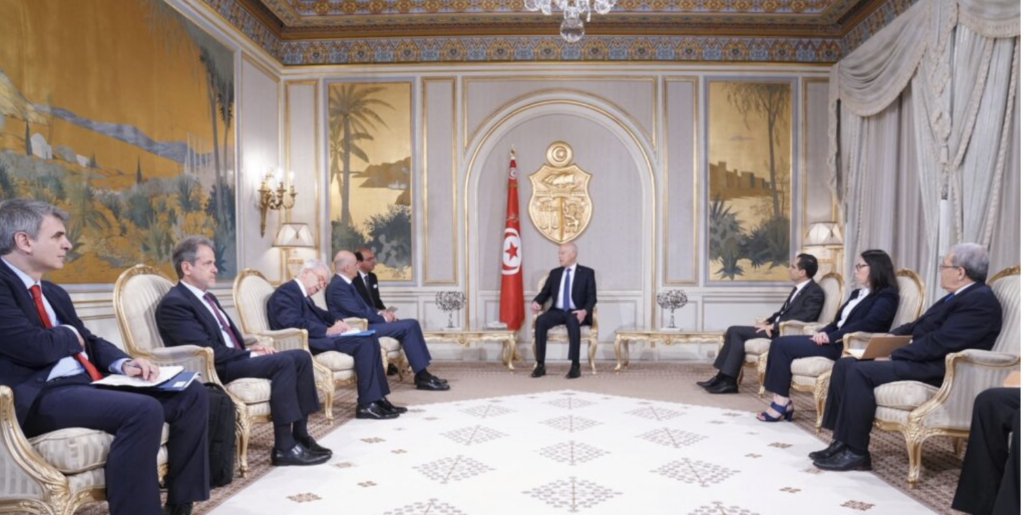
In September 2021, Saied announced that he would rule by decree and ignore parts of the constitution. A new prime minister was selected, Najla Bouden, who became the first female prime minister in the Arab world. The Assembly remained suspended until finally, in March of 2022, Saied officially disbanded the Assembly. In July of 2022, Saied proposed a new constitution to replace the one adopted in 2014, granting greater presidential powers and limiting the Assembly’s. The decision was left to a referendum, and with a 30.5% turnout, 94.6% of the voters voted in favor of the constitutional change – and it was subsequently adopted. Saied subsequently announced that the Assembly would reconvene and new elections would be held in late 2022 and early 2023, but the National Salvation Front opted to boycott these elections. The subsequent Assembly elections featured only two pro-Saied parties and a very low voter turnout at around 11%.
Starting in 2023, prominent political opponents to Saied – including those of the National Salvation Front – were being arrested. In April of that year, the headquarters of the Ennahda Movement was closed and its leader arrested. This spurred a series of arrests, with the latest having been in October of 2023. Charges brought against these individuals and parties includes corruption, fraud, money laundering, and harming public security.
With new presidential elections coming up and with many of Saied’s political opponents in jail, the legitimacy of these elections has been put into question. Like the 2022-2023 Assembly election, the National Salvation Front has opted to boycott the upcoming presidential elections as well. Given this, it appears that even if Saied decided not to run, another individual supportive of the 2021 self-coup would still be poised to win. The election is scheduled to be held on October 6th of this year, the results of which could have drastic ramifications for the future of Tunisian democracy.
Check out our Blog here!








